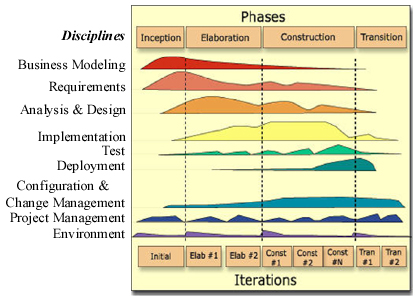|
Project Management
Resource-Trac is committed to helping senior management address complex problems.
Our project management professionals offer a wide array of expertise, including the following:
- Analyzing business processes
- Eliciting stakeholders' needs, using analytical, organizational, and communication skills
- Deriving requirements, using disciplined techniques and approaches to work with stakeholders
- Managing projects with a disciplined methodology; and
- Driving results, providing change management and quality assurance assistance to achieve planned benefits
Resource-Trac uses the following two methodologies for program management and systems integration:
- Rational Unified Process (RUP)
- The Project Management Institute's Project Management Body of Knowledge (PMBOK) - Project Team Structure, Internal Controls and Communications
The Rational Unified Process and PMI Methodologies provide guiding principles for our project teams. Resource-Trac' teams work closely with our clients to select techniques appropriate to their organization, practices, tools, and preferences. Though we have adopted preferred methodologies, we utilize the tools and methodologies most appropriate to use with each client.
Rational Unified Process (RUP)
Resource-Trac follows the Rational Unified Process (RUP) for system development.
We use the following ten principles to implement RUP effectively:
- Vision: Develop a vision
- Process: Choose one that fits
- Plan: Manage to the plan
- Risks: Identify and mitigate
- Business Case: Identify & revisit it
- Use component architectures
- Implement and test iteratively
- Evaluate and assess regularly
- Manage and control changes
- Deploy a usable product
The Rational Unified Process (RUP) divides software development into four (4) phases:
- Inception
- Elaboration
- Construction
- Transition
Each of these phases addresses a different part of the system lifecycle as depicted in this diagram:

RUP's best practices for software development teams:
- Develop software iteratively
- Manage requirements
- Use component-based architectures
- Visually model software
- Verify software quality
- Control changes to software
Project Team Structure, Internal Controls, and Communications
Resource-Trac works closely with customers and their vendors to coordinate communications and activities.
Project teams are developed to match the requirements based upon the business, functional, organizational, and technical requirements of the project.
Common project controls and communication techniques are described in the following sections:
- Project Tracking and Progress Reporting
- Issue Resolution Process
- Change Management Process
|



